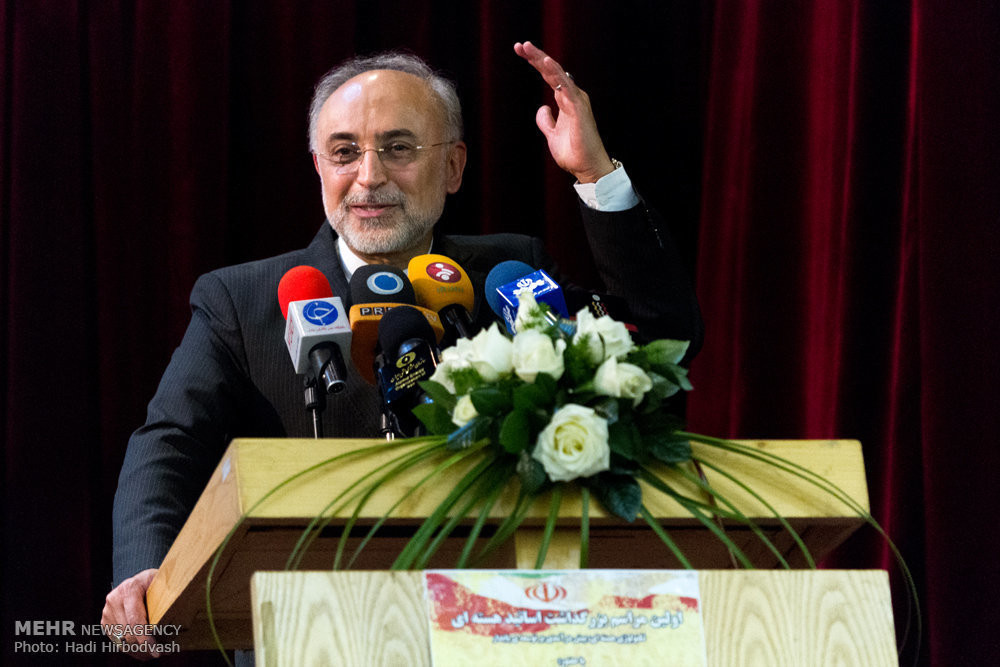Iran nuclear chief: Trump under ‘illusion’ about nuclear deal

TEHRAN – The U.S. president is hallucinating about the international nuclear deal, Iran’s nuclear chief said on Sunday, a few days after Donald Trump claimed Iran was not in compliance.
“Trump is living in illusion,” Ali Akbar Salehi, who was re-appointed as nuclear chief on Thursday, told reporters after being asked what he thought about the recent remarks by Trump about Tehran’s commitments to the deal.
Formally known as the Joint Comprehensive Plan of Action (JCPOA), the deal was forged in July 2015 between Iran, the U.S., Russia, China, Germany, France and England. It gave Iran relief from all nuclear-related sanctions in exchange for rolling back its nuclear activities.
On Thursday, Trump reiterated his claim that Iran is not "living up to the spirit" of the nuclear accord which he called a "horrible agreement."
"I don't think they're living up to the spirit of the agreement," Trump told reporters at his golf retreat in New Jersey, where he is on a 17-day working vacation. "I personally don't think they're in compliance. But we have time, and we're going to see."
He added, "I think you'll see some very strong things taking place if they don't get themselves in compliance."
The Trump administration has taken a hard line against Tehran since its inauguration in January, seeking to mar the deal, which Barack Obama hailed as his signature foreign policy achievement.
As demanded by the U.S. law, Trump has so far certified Iran’s compliance with the JCPOA twice thought he did it in July reluctantly. A third certification is due in October, a real test for Washington’s commitment to a multilateral agreement endorsed by the UN Security Council (UNSC) Resolution 2231.
Reacting to Trump, Iran’s Foreign Minister Mohammad Javad Zarif tweeted on Friday: “POTUS always wanted to kill JCPOA. To avoid isolation, he's trying to blame it on Iran. Bad faith on top of US violating the letter & spirit.”
Unlike Washington, the other JCPOA signatories and the UNSC have not found Tehran in default.
In a meeting with recently sworn-in President Hassan Rouhani in Tehran on August 5, EU High Representative Federica Mogherini confirmed the bloc’s commitment to the nuclear pact, urging “all parties” to implement it.
Mogherini, who is also coordinator of the JCPOA, stressed that the deal was actually delivering its objectives, which is “confirmed by the six International Agency for Atomic Energy reports and by the economic results following the lifting of nuclear related economic and financial sanctions”.
In his inauguration speech, Rouhani implicitly warned Trump that his political life will end in failure if he violates the nuclear agreement.
“Those who want to tear apart the nuclear deal should know that they would also tear apart their political life,” Rouhani emphasized, accusing the “unreliable partner” U.S. of a “lack of commitment” to the deal.
Tehran says Washington keeps ignoring the terms of the deal, particularly citing paragraphs from the JCPOA which explicitly demands the U.S. to “make best efforts in good faith to sustain this JCPOA and to prevent interference with the realisation of the full benefit by Iran of the sanctions lifting…”
Iran also says new sanctions by Washington is undermining the nuclear deal. Trump signed into law on August 3 a piece of legislation that levied new sanctions against Iran, Russia and North Korea.
The Iranian portion of the bill seeks to ban anyone dealing with Iran's ballistic missile program from entering the U.S., and blocks transactions on properties held in the U.S. by people associated with the program, the CNN reported.
"The main purpose of the United States in implementing the sanctions against Iran is to destroy the JCPOA," said Abbas Araqchi, Iran’s deputy foreign minister who acted as a top negotiator in the nuclear talks.
Tehran promised retaliation though trade between the two sides is meager and there are no diplomatic relations for decades now.
On Sunday, 240 Iranian lawmakers overwhelmingly passed a retaliatory bill to pour approximately $260 million more each into the country's ballistic missile program and the Quds Force, the external wing of the Islamic Revolution Guards Corps (IRGC), among others.
AK/PA
